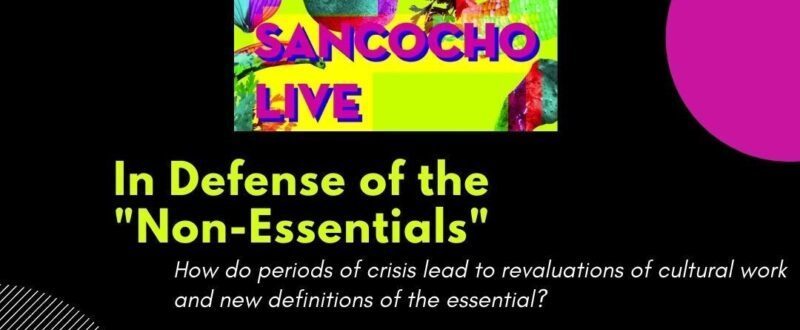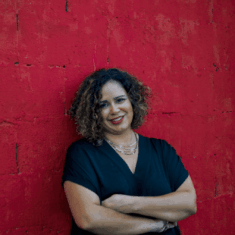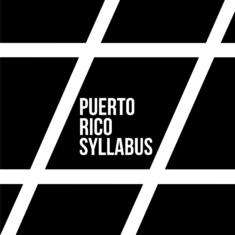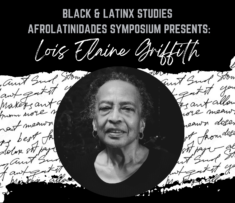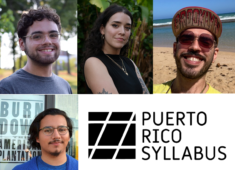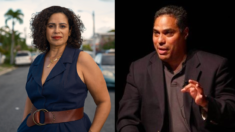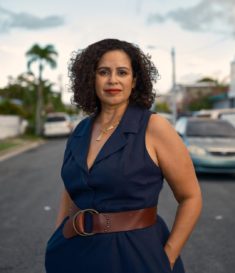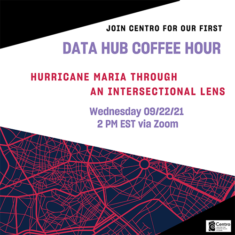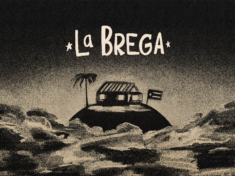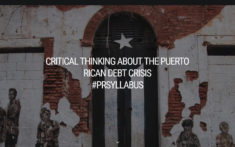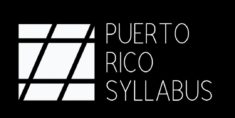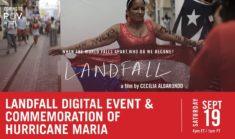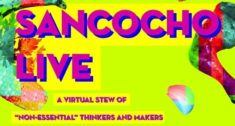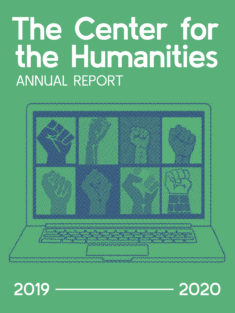About the event
The second session of the Sancocho
Live focused on broadening the conversation around how periods of crisis
lead to revaluations of cultural work and redefine what is essential.
Puerto Ricans have long understood their culture as a tool for political
resistance, but how many other strategies do cultural workers deploy to
respond, resist and transform their communities? How do their lives and
creative processes intertwine? We opened with a video prologue by
Nuyorican poet Edwin Torres, who shared a poem to set the tone:
Afterwards, two other artists shared their work through short videos commissioned for the event. Melissa Calderón,
from the Bronx, New York, talked about the process of reclaiming her
grandmother’s embroidery teachings in 2011, after the economic crisis
impacted her directly. The practice of embroidery allowed her to make
work about not having work. These ruminations form part of a series
titled ‘My Underemployed Life’.
Teresa Hernández, based in San Juan, Puerto Rico, shared her long-term project Bravatas, a work that has extended her artistic practice to design a research process that is an instrument and a performative act at the same time.
To further the conversation, we invited artist Sofía Gallisá Muriente to moderate a Q&A between Marianne Ramírez Aponte,
Curator and Director of Puerto Rico’s Museo de Arte Contemporáneo
(Contemporary Art Museum), Carla Torres Trujillo, activist and general
coordinator of queer cultural space El Hangar in Santurce and Monxo López, activist and current curatorial fellow of the Museum of the City of New York.
Although working from very different perspectives, the dialogue was an
opportunity to connect those experiences and discuss the myriad forms in
which cultural workers engage in social, political and community work
in the face of disasters and upheaval in Puerto Rico and the diaspora. The second Sancocho Live ended with a DJ set by Buscabulla. Watch the recording of the event here:
How do periods of crisis lead to revaluations of cultural work and new definitions of the essential? /¿Cómo en periodos de crisis se revaloriza el trabajo cultural y se redefine lo esencial? /
Join us for "In Defense of the 'Non-essentials,'" the second in a 3-part virtual event series "Sancocho Live: Catastrophe, Resistance, & Joy" which brings together scholars, writers, artists, and activists to think about how “non-essential” communities, workers, and institutions are responding to the intersecting catastrophes of the present. Drawing inspiration from Pedro Pietri’s concept of the “aesthetic sancocho” each event will consist of short video presentations, followed by a moderated dialogue (open to Q&A) with Puerto Rican cultural workers in the island and the diaspora. We will end with a virtual jangueo where DJ's set the mood and participants can continue building together.
***NOTE: you must register here on Eventbrite to receive the Zoom link***
** Events will be fully bilingial with English & Spanish interpretation by Babilla Collective **
PROGRAM
- Video Presentations: Melissa Calderón, Teresa Hernández, Edwin Torres.
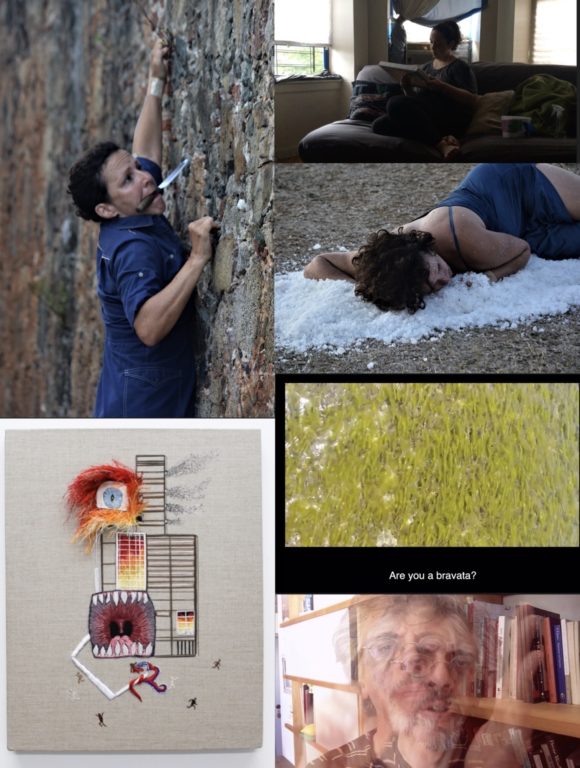
Edwin Torres is a Nuyorican poet born in the Bronx whose performances combine vocal and physical improvisation and theater. He will kickoff the event with a poetic intervention.
Melissa Calderón is a self-taught artist born, bred and residing in the Bronx. She has been embroidering as part of her artistic practice since 2011, when she began the series My Underemployed Life.
Teresa Hernández is a movement and performance artist from San Juan, Puerto Rico. As part of her project Bravatas, she is currently working on surveying residents of coastal communities in Puerto Rico about economic and environmental precarity.
- Q&A mdoerated by Sofía Gallisá Muriente, with Marianne Ramírez Aponte (MAC), Carla Torres (El Hangar) y Monxo López (MCNY)
- Jangueo virtual / Dj session with Buscabulla
This series of events is co-sponsored by The Clemente Soto Velez Cultural & Educational Center in partnership with #PRSyllabus and the Center for the Humanities at The Graduate Center, CUNY as part of the The Puerto Rico Syllabus project from the Seminar on Public Engagement and Collaborative Research.
